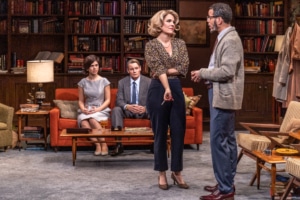DCPA NEWS CENTER
Enjoy the best stories and perspectives from the theatre world today.
Enjoy the best stories and perspectives from the theatre world today.
Edward Albee’s Who’s Afraid of Virginia Woolf? is filled with references, from single line-drops to overarching ideas. This list doesn’t cover everything that could be mentioned, but it’s a good start. Watch the show and see if you can notice any more!

DETAILS
Edward Albee’s Who’s Afraid of Virginia Woolf?
NOW – MAR 6, 2022 • Singleton Theatre
